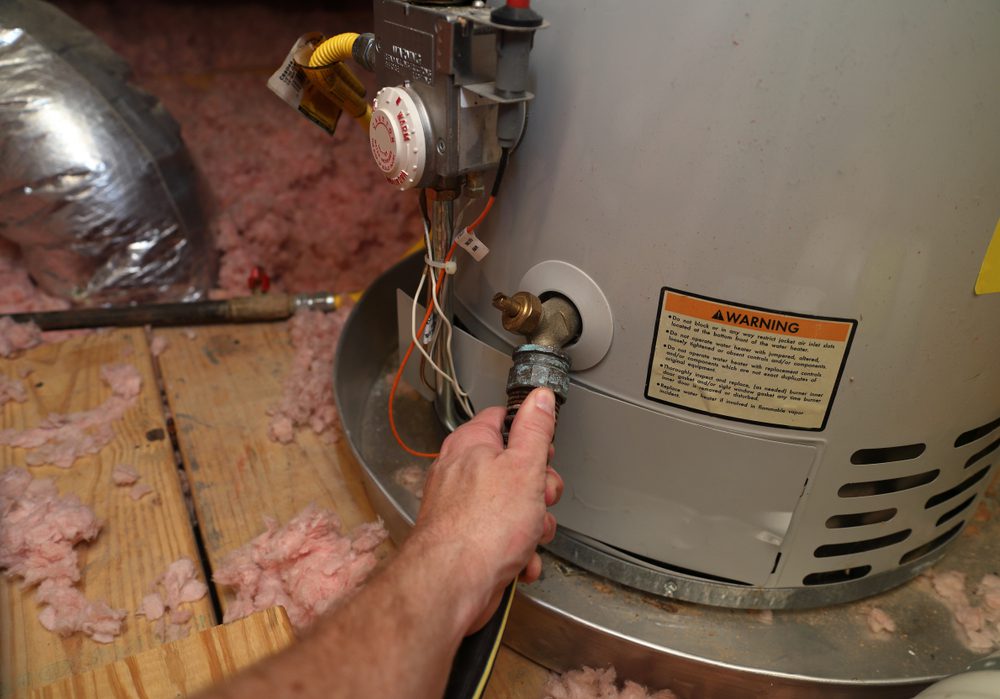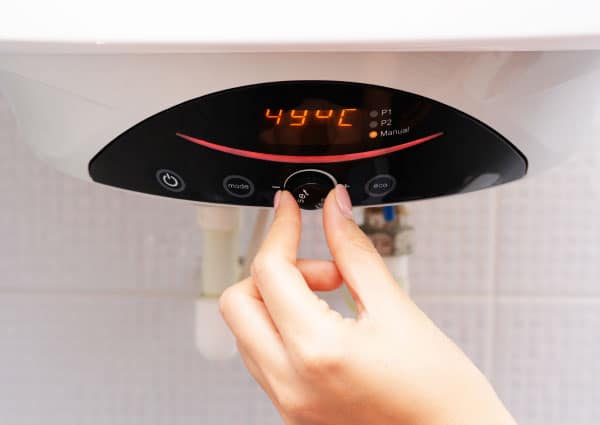Managing the Routine Hot Water Heater Crisis Events
Managing the Routine Hot Water Heater Crisis Events
Blog Article
Just about every person has their own individual theory when it comes to Common Hot Water Heater Problems.

A hot water heater is just one of one of the most important basic home appliances that can be located in a home. With water heaters, you don't require to experience the stress and anxiety of heating water by hand whenever there is a requirement to wash, do the laundry, or the dishes. There is always an opportunity that your water heating unit would certainly act up as with many mechanical devices.
It is important to note any little breakdown as well as tackle it swiftly before points get out of hand. Many times, your hot water heater starts to malfunction when there is an accumulation of debris as a result of constant use. As a safety measure, routine flushing of your hot water heater is advised to stop debris buildup as well as prevent practical failure.
Common water heater emergency situations as well as how to manage them
Dripping water heater container.
In this situation, you need to turn off your water heater, enable it to cool down, and also thoroughly look for the resource of the problem. At times, all you require to do is to tighten up a few screws or pipeline links in cases of minor leaks. If this does not function and also the leak continues, you could need to employ the solutions of a service technician for a proper replacement.
Fluctuating water temperature level.
Your water heating system can start generating water of different temperature levels typically ice scalding or chilly hot. There may be a demand to replace either the thermostat or the home heating system of your water heating system.
Too little hot water
It may be that the water heater can not sustain the hot water demand for your home. You could update your water heating system to one with a bigger capacity.
Blemished or stinky water
You require to know if the concern is from the water or the tank resource when this happens. You are particular that it is your water heating system that is malfunctioning if there is no amusing odor when you run cold water. The odiferous water can be caused by rust or the accumulation of microorganisms or debris in the water heater storage tank. When you discover this, you can try flushing out your storage tank or replacing the anode if the problem continues. The feature of the anode is to clean germs from your tank. Considering that the anode rod replacement requires an extensive knowledge of your water heater, you will require the assistance of a professional.
Final thought
Some homeowners overlook little warning and also minor faults in their hot water heater unit. This just brings about additional damages and also a possible complete failure of your home appliance. You need to take care of your water heater mistakes as soon as they come up to prevent more expenditures as well as unneeded emergency troubles.
With water heating systems, you do not require to go via the anxiety of home heating water manually every time there is a requirement to take a bathroom, do the laundry, or the dishes. Your water heating unit might start producing water of different temperature levels normally ice chilly or scalding hot. It may be that the water heating unit can not sustain the warm water need for your apartment. If there is no amusing scent when you run chilly water, then you are certain that it is your water heater that is damaged. The odiferous water can be caused by corrosion or the build-up of microorganisms or sediments in the water heating system container.
Water Heater Burst: Why This Happens And What To Do Next
Water Heater Explosion Warning Signs
Since storage water heaters are made of metal and store large volumes of heated water, they carry an increased risk of leaking or even exploding as they begin to rust at the fittings and seams over time. If the thermostat controlling the water temperature within the tank is faulty, or if mineral buildup inside the water heater prevents the thermostat from sensing the water’s temperature correctly, the water could become overheated. This will expand its volume within the tank, causing it to press at the tank’s fittings and seams. If these fittings and seams are rusted or corroded, the pressure could result in a leak or even an explosion.
Here are some risk factors and warning signs of an increased risk of water heater leak or explosion:
Your water heater is more than 10 years old. Your water heater makes clanking, banging or rumbling noises as it heats up, indicating that sediment has built up and hardened inside the tank. There is visible rust on the outside of the water heater, especially located at the pipe fittings or the seams that run down the tank. There is rusty water coming from your water heater, indicating that there may be rust building up inside. Your water heater is leaking, which could indicate either a crack somewhere in the tank or a malfunctioning temperature-and-pressure (T&P) relief valve. What To Do When Water Heater Leaks
If you find water dripping or seeping out of your water heater, or pooling around it, it means your water heater is leaking. If you find a leak, it may be best to call a plumbing professional to diagnose the problem and determine how best to handle it. If you choose to tackle it on your own, there are a few things you can do.
TURN OFF THE POWER
Next, shut off the power to the hot water tank at your home’s electrical breaker box. If you don’t shut off the power, the heating elements within the tank could continue to stay hot, which could pose a fire risk.
If you have a gas-powered water heater, you’ll also need to shut off the gas line leading into the tank.
FIND THE LEAK
Now it’s time to determine where the leak is coming from. Likely locations are the T&P valve, the drain valve or one of the pipes or fittings that feed into the top of the tank. If you see any rust or corrosion on the outside of your water heater’s tank, pipes or fittings, these could also be the source of the leak.
REPAIR THE LEAK
Once you determine the source of your water heater leak, you’ll have a better idea of what steps you need to take to fix the problem. It may be a simple fix—such as using a wrench to tighten fittings or replacing the T&P valve—but it may be something more complicated. You may even need to drain the tank, remove the water heater and install a new one.
https://www.abchomeandcommercial.com/blog/water-heater-burst/

I'm certainly very drawn to Is Your Water Heater Leaking? and I hope you appreciated the blog post. Loved our piece? Please share it. Let others find it. We love reading our article about Warning Signs You Need Water Heater Repairs.
Get A Free Quote Report this page